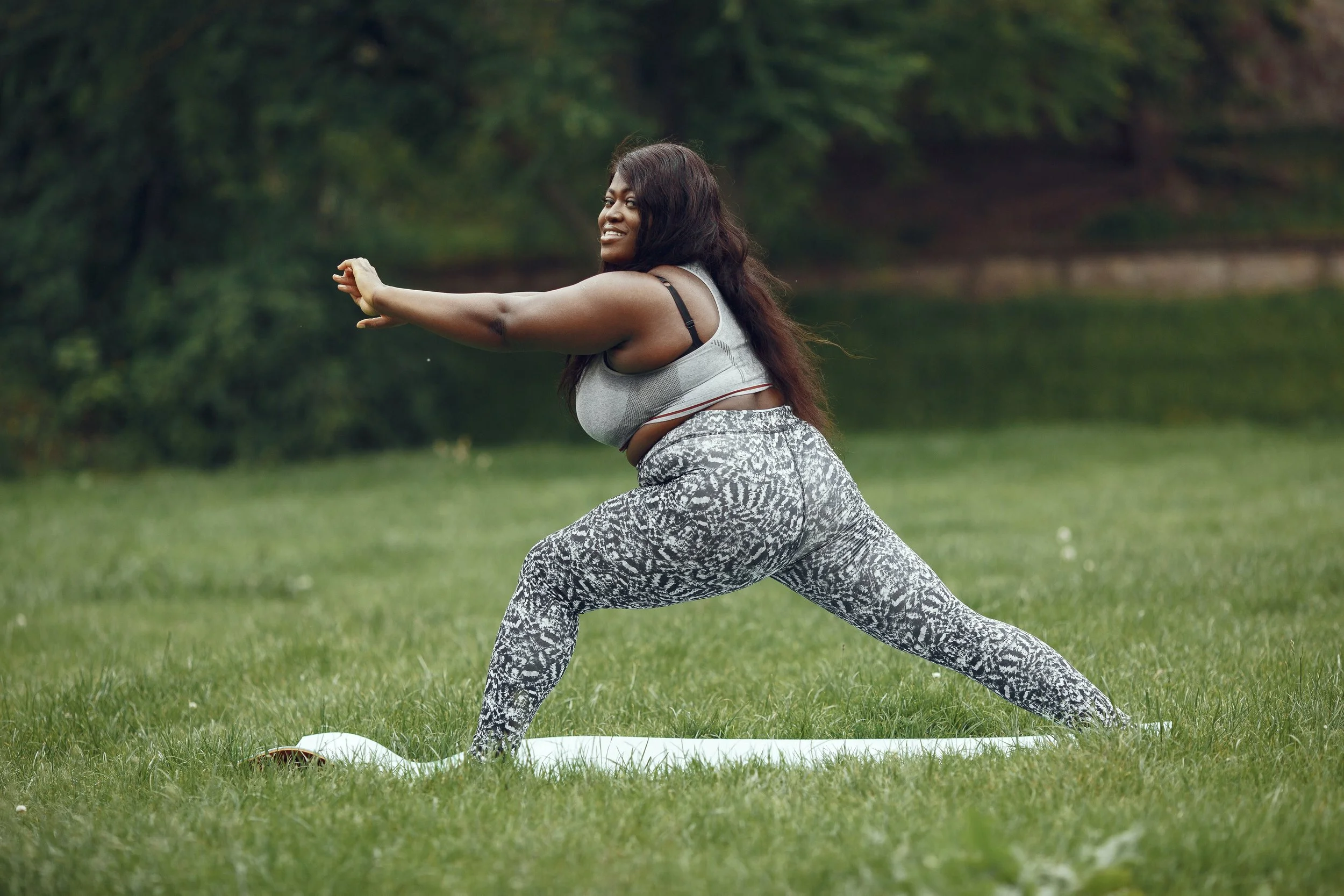The Science of Love: How It Affects Your Brain & Hormones
Love isn’t just an emotion—it’s a complex biological process that triggers powerful changes in the brain. Whether it’s romantic love, deep friendships, or self-love, your body responds by releasing a cocktail of hormones that influence mood, stress levels, and overall well-being.
From the rush of excitement when you’re with someone special to the warmth of a hug, love activates key neurotransmitters that create feelings of happiness, trust, and emotional bonding. But what exactly happens in your brain when you experience love? Let’s dive into the fascinating world of happy hormones and how they shape our connections.
The Key Happy Hormones
Love triggers a release of powerful hormones that influence mood, stress, and overall well-being. These brain chemicals play a vital role in creating feelings of connection, excitement, and happiness.
Oxytocin: The Bonding Hormone
Known as the "love hormone," oxytocin strengthens emotional bonds and fosters trust. It’s released during hugs, cuddles, and deep connections, enhancing feelings of safety and intimacy.
Dopamine: The Reward Hormone
This "feel-good" hormone fuels pleasure and motivation, making love feel exciting and rewarding. It plays a key role in attraction and the joy of shared experiences.
Serotonin: The Mood Stabilizer
Essential for mood regulation, serotonin promotes a sense of stability and well-being in relationships. Higher serotonin levels contribute to emotional balance and overall happiness.
Endorphins: The Natural Painkillers
These natural pain relievers create feelings of happiness and relaxation. Released through laughter, exercise, and physical touch, endorphins help reduce stress and increase overall well-being.
How Love Affects Your Brain and Body
Love is more than an emotion—it’s a powerful biological process that influences both the brain and body. It triggers chemical changes that shape emotions, strengthen connections, and promote overall well-being.
Brain Chemistry and Emotional Responses
Dopamine Surge: This “reward hormone” spikes during early love, creating euphoria, heightened focus, and excitement.
Cortisol Increase: The initial stages of love raise cortisol, the body’s stress hormone, leading to nervousness, a racing heart, and heightened emotions.
Serotonin Dip: Early romance can lower serotonin levels, fueling preoccupation and obsessive thinking about a partner.
Physical Health Benefits
Heart Health: Love lowers blood pressure and reduces heart disease risk by easing stress.
Pain Relief: Physical affection, like hugging and kissing, releases endorphins, acting as natural painkillers.
Stress Reduction: Emotional support in loving relationships lowers cortisol, promoting relaxation and stronger immune function.
Long-Term Bonding and Attachment
Oxytocin Boost: Known as the “cuddle hormone,” oxytocin strengthens trust and deepens emotional bonds.
Vasopressin’s Role: This hormone supports long-term commitment, reinforcing monogamous behavior and relationship stability.
Love plays a crucial role in emotional well-being and physical health, shaping how we connect and thrive in relationships.
Ways to Naturally Boost Your Happy Hormones
Love isn’t the only way to activate the brain’s feel-good chemicals. By incorporating certain habits into your daily routine, you can naturally increase oxytocin, dopamine, serotonin, and endorphins, leading to a greater sense of happiness and emotional well-being.
1. Increase Oxytocin with Physical Connection
Oxytocin, the “bonding hormone,” thrives on physical touch and social interactions. Simple actions like hugging a loved one, holding hands, or even cuddling a pet can stimulate oxytocin release, promoting trust and emotional bonding.
Engaging in meaningful conversations and practicing gratitude also enhances oxytocin levels, fostering stronger relationships.
2. Boost Dopamine Through Small Achievements
Dopamine fuels motivation and reward, making it essential for staying driven and feeling accomplished. Setting and completing small goals—whether it’s checking off a to-do list item, learning something new, or finishing a workout—can activate dopamine pathways.
Enjoying music, eating protein-rich foods, and celebrating personal wins can also enhance dopamine production.
3. Support Serotonin with Sunlight and Movement
Serotonin plays a vital role in mood stability and emotional balance. Exposure to natural sunlight helps the body produce serotonin, making morning walks or outdoor activities a great way to boost levels. R
egular exercise, such as yoga, swimming, or even light stretching, increases serotonin while also reducing stress. Incorporating foods rich in tryptophan, like turkey, eggs, and nuts, supports serotonin synthesis.
4. Trigger Endorphins with Laughter and Exercise
Endorphins act as natural pain relievers, improving mood and reducing stress. Engaging in physical activity, from running to dancing, stimulates endorphin production. Laughter is another powerful way to release endorphins—watching a comedy, spending time with friends, or practicing laughter yoga can all contribute to increased happiness and relaxation.
By making small, intentional changes in daily life, you can harness the power of these happy hormones to improve emotional well-being, reduce stress, and strengthen relationships.
The Long-Term Benefits of Love on Health
Love does more than bring joy in the moment—it supports long-term physical and mental well-being. Strong relationships, whether romantic, familial, or platonic, are linked to better health, increased longevity, and reduced stress.
1. Supports Heart Health
Loving relationships lower blood pressure and reduce the risk of heart disease. Oxytocin, released during affection, helps relax blood vessels and counteracts the harmful effects of stress-related cortisol.
2. Boosts Immune Function
Emotional connection strengthens the immune system by reducing stress, which otherwise weakens the body’s defense against illness. People in healthy relationships tend to have better immune responses and faster recovery times.
3. Promotes Longevity
Strong social bonds contribute to a longer life. Studies show that individuals with meaningful relationships experience lower rates of chronic illness, healthier lifestyle habits, and increased resilience against aging-related conditions.
4. Reduces Stress and Anxiety
Love provides emotional security, lowering cortisol levels and easing stress. Having a supportive partner or community can help regulate emotions, making it easier to manage challenges and uncertainty.
5. Enhances Mental Well-Being
Fulfilling relationships boost serotonin and dopamine, which improve mood, motivation, and overall happiness. Love fosters a sense of belonging and purpose, reducing the risk of depression and promoting long-term emotional stability.
By prioritizing meaningful connections, love becomes a lifelong tool for better health and overall well-being.
When Love Becomes Unhealthy
While love is a powerful force for well-being, it can sometimes become a source of emotional distress. Unhealthy attachments, emotional dependence, and toxic relationship patterns can negatively impact mental health. Recognizing the signs of unhealthy love and taking steps to maintain emotional balance is essential for long-term happiness.
Recognizing Emotional Dependency
Love should enhance your life, not define your entire sense of self. Emotional dependency occurs when one relies excessively on a partner, friend, or loved one for validation, happiness, or self-worth. This can lead to anxiety, insecurity, and difficulty functioning independently.
Signs of emotional dependency:
Constant fear of rejection or abandonment
Difficulty making decisions without reassurance
Feeling incomplete or lost without a partner
Sacrificing personal well-being to keep someone in your life
Practicing self-care, building personal confidence, and maintaining a strong sense of individuality can help create a healthier balance in relationships.
Managing Stress in Relationships
Even in loving relationships, conflicts and challenges are inevitable. Stress can arise from unmet expectations, miscommunication, or external pressures. However, how partners handle stress determines whether the relationship strengthens or weakens over time.
Ways to manage stress in relationships:
Open and honest communication about feelings and needs
Setting healthy boundaries to protect emotional well-being
Practicing active listening to foster understanding
Engaging in self-care activities to reduce tension
Avoiding Toxic Relationship Patterns
Toxic relationships can take a toll on both mental and physical health. Patterns of manipulation, control, or emotional neglect can lead to long-term emotional distress.
Red flags of an unhealthy relationship:
Frequent criticism or belittling
Lack of trust and respect
Emotional or physical manipulation
Feeling drained rather than supported
Recognizing these patterns early and seeking guidance—whether through personal reflection, therapy, or open conversations—can help break the cycle and foster healthier relationships.
Maintaining emotional balance in love requires self-awareness, personal growth, and mutual respect. Love should uplift, not diminish, your well-being.
Conclusion
Love is more than just an emotion—it’s a powerful force that shapes our brain chemistry, physical health, and overall well-being. The release of key hormones like oxytocin, dopamine, serotonin, and endorphins helps create feelings of connection, joy, and security. Whether through romantic relationships, friendships, or self-love, these bonds contribute to mental resilience, reduced stress, and even improved longevity.
While love offers profound benefits, maintaining emotional balance is essential. Recognizing the difference between healthy and unhealthy attachments ensures that relationships uplift rather than drain us. By fostering meaningful connections, practicing self-care, and embracing positive relationship habits, love becomes a lifelong source of happiness and well-being.
Whether shared with a partner, family, friends, or even yourself, love has the power to transform both mind and body. Prioritize the connections that bring you joy, and let love be a force for health and fulfillment in your life.









